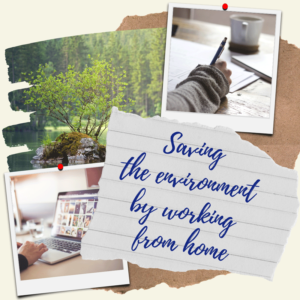
All sorts of conditions determine our everyday behaviour and fix us in time and space. They seem to leave us very little room to manoeuvre. For instance, given time we will age. Fortunately, all kinds of assistive technologies can help us to cope with the conditions that inherently accompany ageing.
In a nutshell, assistive technology (AT) is anything, from an item to a piece of equipment to a piece of software to an entirely new product that helps increase, maintain, or improve the functional abilities of people.
Do assistive technologies help us or do they counteract everything we can do better ourselves?
Some of the links might be affiliate links. As an affiliate associate, we earn a small commission when you purchase any of the products offered through the shared links at no extra cost for you. This helps us to maintain this website.
Table of contents
Assistive technologies compensate adverse effects

Most of the assistive technologies compensate for the adverse effects of conditions that determine our everyday life:
- Our innate physical limitations, such as aging;
- Shortcomings and risks associated with our physical, social and political environment;
- Laws and rules;
- Macro-economic developments that determine our financial status;
- And technological possibilities.
Assistive technologies and adverse attitudes
Unfortunately, we often oppose assistive technologies because they appeal to distinct personal qualities at the same time.

We possess adverse attitudes, e.g. selfishness versus altruism, inconsistency versus consistency, indifference versus involvement. These contradictory properties make it hard for us to overcome what we see as fixed conditions.
Our adverse attitudes continuously change our perspective on life. However, no matter from which perspective we look at life, no matter what attitude motivates us, we have to cope with the changes that over time life presents us with.
Whether you like it or not, you will age. Your response to this condition makes the difference.
Related: What is the Best Long-term Care Plan and Why do we Need One?
No frustration, but activation

No matter how life’s conditions change, we still want to fulfil our wishes and uphold our ideals, principles, and morals. For this an open mind is welcome. We also want to be in control. We don’t want changes to frustrate us.
However, we can’t always prevent our often ill-judged frustrations to dominate our thoughts and behaviour. That’s why adapting to changing circumstances seems a good path to follow. You might even take this literally, you follow another route and change your life. This suggests that there’s an alternative to frustration. That’s true, you should prevent yourself to be out of choice. Assistive technologies help you to achieve this goal.
Assistive technologies ease fixed conditions
The best proof is the technology that supports us to cope with all kinds of everyday risks, such as an ageing body.

From a simple walking stick to our technologically advanced car, when we age we more and more rely on these kinds of assistive technologies.
The importance of these technologies is best demonstrated by the enormous improvement in quality of life during the past 20 years in Europe for people aged 70 and over.
This improvement is attributed to the growth in possibilities for mobility. From a rollator to cheap flights, and from scoot mobiles to group taxis, the elderly are the ones that profit most from these ‘mobile’ assistive technologies.
Related: 56 Ways to Improve your Mobility
Get a move on and enjoy
It’s our choice to use assistive technologies. We might sometimes feel overwhelmed by these technologies because they remind us of our limits. But as soon as they get you going again, you will most certainly enjoy them.
How do you feel about assistive technology? Tell us in the comment box below.

